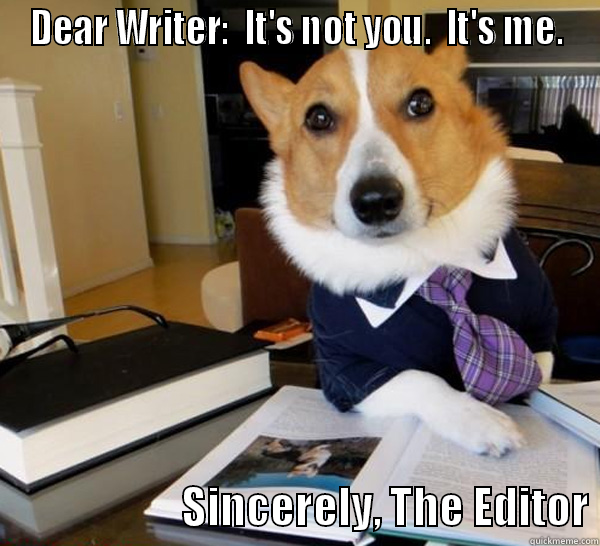
Actually, it’s you. Love, the Editor.
Harsh, I know. Alas, sometimes tough love is necessary for the greater good. Cait Reynolds here today, and what I’m about to reveal is the secret heart’s cry of pretty much every freelance editor (at least the ones that don’t just run manuscripts through Grammarly).
Having worked as a freelance editor for many years, I’ve seen it all from the articulate and amazing, to the works of pure WTH?
I’ve also been given ARCs of books that are ‘professionally edited,’ but are appallingly full of typos, grammatical errors, and trite characters and plots.
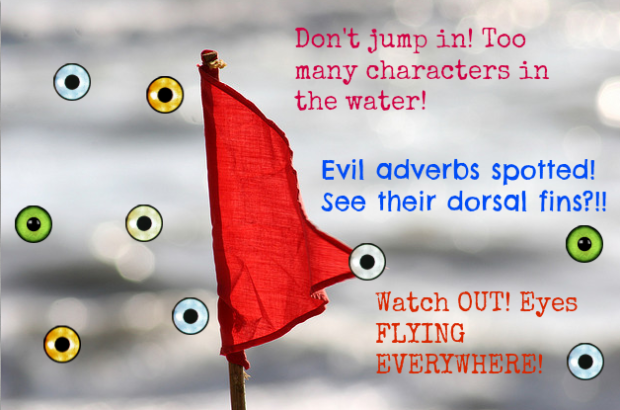
I’m not necessarily blaming the editors in these cases. I get it. Sometimes, a work is simply so awful that we would have to completely rewrite it just to get it into passable shape. And, for a fraction of a penny per word, it isn’t worth it.
While there are definitely things editors can do to start helping to correct and cure this epidemic of literary mediocrity, there are things that writers need to do as well. That’s what I’m going to focus on today.
An editor hates…
1. When writers think they don’t have to do at least one or two rounds of their own editing before sending us a manuscript.
I’m not just talking about proofreading for commas (though, that’s another thing coming up). Everyone is in such a rush these days to get their work up on Amazon as fast as they can. So many authors finish up a “manuscript,” hit save, and then email it to their editor without a second thought….or a second look.
Let me throw out this hypothetical situation. Say we were sending this manuscript to an editor at Harper Collins or Penguin. Would we hit save and then send it off without combing through every line?
Or, would we let the manuscript sit for a week or two, giving our brain time and distance so we can go back at it with fresh eyes? Would we read through it critically, looking for (and correcting!) everything from typos and inconsistencies to doughy dialogue and plot holes? Would we repeat this process at least once if not twice more?
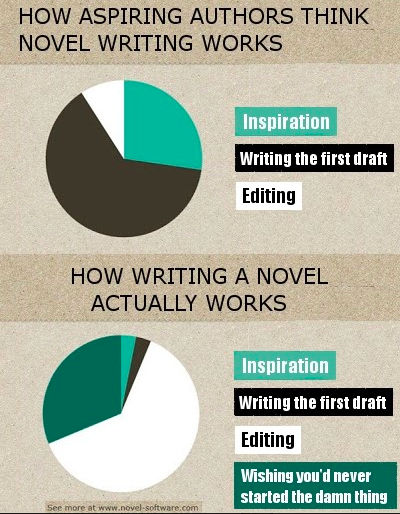
We probably would because we know the editor is probably hard-to-please with extremely high expectations about the degree of polish in any work they receive.
So why is sending a manuscript to a freelance editor any different? It shouldn’t be.
Freelance editors aren’t entirely innocent in this, either. We take on work instead of asking for a sample to see what the manuscript is like and then refusing to work on it until the author has gone back and cleaned it up. But, Amazon KDP has both exacerbated and preyed on authors’ fear of rejection to create a murky industry that cycles off of accepting mediocrity as a norm.
I digress.
2. When authors shop around for the cheapest editing services instead of the best editing services.
Editing is one of those things in life where we really do get what we pay for.
Professional freelance editors with experience and training beyond “I love reading,” and “I’m a writer, too,” are pretty rare commodities these days. If we are lucky enough to be taken on by one of these editorial unicorns, we should expect to pay the going rate for unicorns.
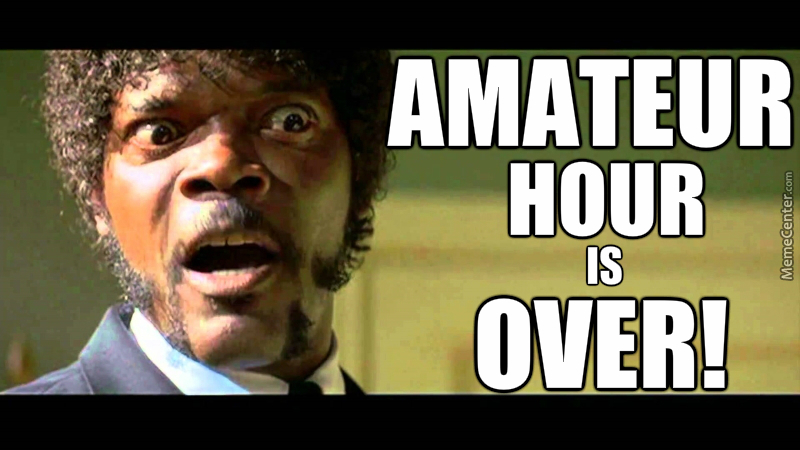
Many authors don’t want to go that route because it would mean having to save up money and probably publish fewer books. I don’t think that’s a bad thing because not every idea will make a good book.
Also, like cheese, wine, and wisdom, good ideas and stories need time to mature. We need time to noodle and daydream, to experience those moments of sudden inspiration while doing the dishes or walking the dog.
Instead, far too many authors slap down 60,000 words for whatever idea pops into their heads and then rush on to the next idea. Because if we’re not putting out three books a month, we’re gonna get tossed off the KDP Hamster Wheel of Death.
Producing books in volume means paying for production with an eye to getting volume-discounted services.
The average going rate for editors who provide services to these authors is about $240 for two rounds of editing on a 60,000-word manuscript.
Let’s say that an average editing effort takes 20 hours. That’s $12/hr (before self-employment taxes). It’s only our aversion to fryolators that keeps us from going to work at McDonald’s.
I’m not even going to talk about how authors will pay $500-$800 for a custom cover design but want that $200 editing job to cover concept editing, line editing, and proofreading. It’s enough to turn an editor into a jumper. Or cover designer because screw this $h!t.

An editor gets stabby when…
3. All an author does is accept track changes and sends the manuscript back for round two.
Yes, I have received manuscripts back like this. It’s like the author just ignored all conceptual, content, and craft comments I painstakingly made. This is frustrating because it makes editing incredibly tedious. More than that, it’s disheartening.
When a writer ignores editorial guidance, he or she is also turning down the opportunity to become better at the craft of writing. A good editor doesn’t just catch typos and minor inconsistencies. A skilled editor can identify a writer’s strengths and weaknesses and teach the writer to enhance the first and correct the second.
I’m not sure why writers are so often dismissive of editorial suggestions. Is it because they are in such a rush to get the book out (I see you, KDP Hamster Wheel of Death) that they simply don’t have the time to do a proper editing job?
Or, could it be that they don’t want to take on the daunting task of tearing apart a completed manuscript and painstakingly reworking and rewriting it? Maybe it’s because they’re afraid that trying to improve their writing would imply they’re not that good to start with and probably would never be able to get a traditional publishing contract.
Ignoring editorial guidance is also disrespectful. Let’s go back to that Harper Collins example. How inclined would we be to ignore an editor from Harper Collins who returned our manuscript with suggestions for not only reworking a good third of the book to tighten the plot, but also for learning to be more succinct yet vivid with our descriptions (meaning we need to go page-by-page on our own and make changes)?
So, why ignore guidance and suggestions just because an editor is freelance?
4. There are stupid grammar and usage mistakes in a manuscript.
Seriously. While I get that there are some fine points with grammar that we all fumble with from time-to-time, there is absolutely NO excuse for using the wrong word or using a word incorrectly.
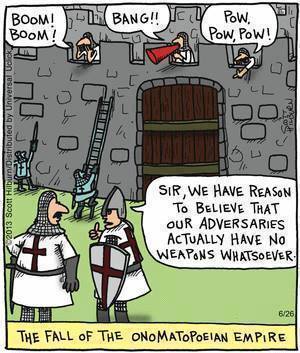
Words are a writer’s business, like medicine is a doctor’s business. How much would we trust a doctor who glanced at a fractured tibia and said, “Uh, seems like you broke your leg thingy.”
How about a list of cringe-inducing usage mistakes I see every single day in manuscripts and self-published books?
- Conscious/conscience
- Weary/wary
- Disdain/distain
- Wondering/wandering
- Past time/pastime
- Shuttered/shuddered
- Chocked/choked
- Peak/pique/peek
- Lossed (not even a word)/lost
- Passed/past
- Lead/led
Are some of these typos or bleary brain slip-ups? Maybe, but frankly, these should be caught and corrected long before an editor ever sees the manuscript. However, when the wrong word is used consistently, that tells me the writer doesn’t actually know the meaning.
Even worse, when I see incorrect usage that has made it into the final book, I’m ninety-nine percent sure the editor doesn’t know what he or she is doing…or committed seppuku halfway through the editing process.
In terms of grammar, I get that we all have different levels of training. However, just like we don’t want a broken-leg-thingy doctor, I don’t want to see writers who don’t know and don’t bother to learn the most basic rules of language.
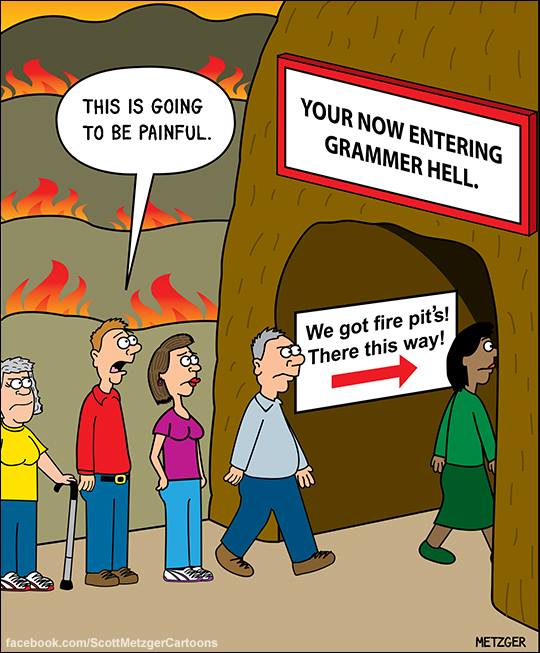
Personally, I like the Oxford English Dictionaries’ online grammar reference.
And finally, an editor really, really hates…
5. When we can tell all a writer really wants is the look-at-me-I-published-a-book participation trophy.
The National Association of Recovering Freelancers* put out a study that said four out of five freelance editors suffer a nervous breakdown due to the near-lethal combination of shoddy writing, shoddier story conceptualization and development, and repeated exposure to bad grammar.
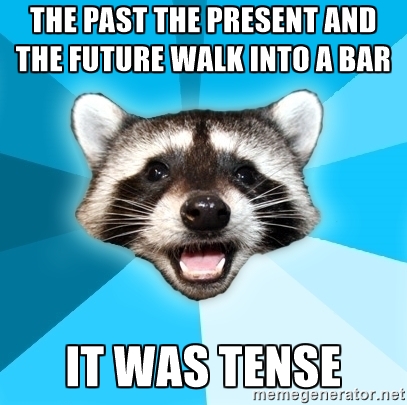
*I totally made up the National Association of Recovering Freelancers, but now that I think of it, I really like the acronym, N.A.R.F. Very ‘Pinky and the Brain.’
What drives freelance editors to give it all up? Why do they consider it more productive to search Pinterest compulsively for DIY seashell crafting than to edit a manuscript?
Part of it is the money. It’s also the soul-dulling tedium of slogging through clunky prose, bad grammar, and tired tropes (at $0.004 to $0.006 per word). Most of all, it’s nihilistic realization that so many writers care more about seeing their name on Amazon than whether their readers are getting the best possible story they could write.
Without the Amazon KDP platform, almost none of these writers would ever stand a chance with literary agents and traditional publishers. While the pre-KDP era was far from perfect, repeated rejection had one MAJOR benefit: either the writing got better, or it was never inflicted on the unsuspecting public.
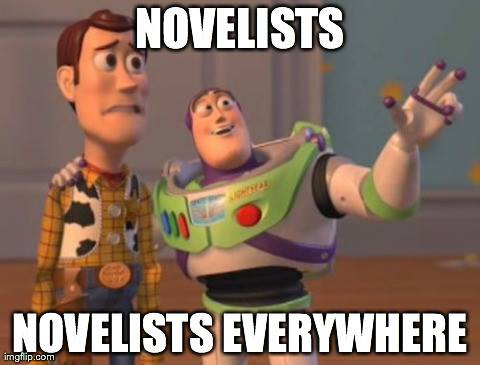
It was the publishing industry’s equivalent of telling the broken-leg-thingy doctor to either go back to school or consider a different career like professional Zamboni driving.
See? Not all gatekeeping is a bad thing. But, freelance editors now have all the work and none of the power, and the reading public is the worse for it.
Harsh but hopeful?
The fact that you are here and reading this blog gives me hope. It means you actually care about becoming a better storyteller and craftsman. It isn’t that freelance editors want to see perfection right off the bat. We merely long to see progress.
Freelance editors do this because we love the written word. We are unflaggingly idealistic, optimistic, and altruistic…until we’re not.
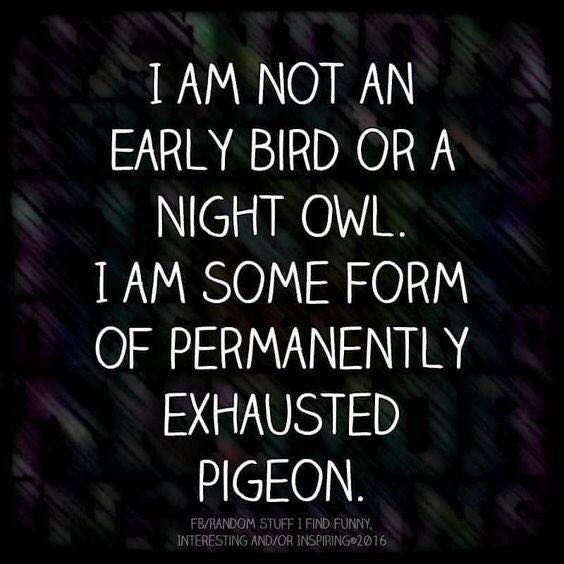
If you or someone you love is a freelance editor who is showing signs of stress (common signs and symptoms include wild-eyed staring at the screen, increased consumption of alcohol/caffeine, and muttering, “Alas, poor literature, we hardly knew ye!”), N.A.R.F. recommends the following treatment options:
- Vitamin D. Take your freelance editor outside and reassure them that the light will not actually burn;
- Laugh therapy. Expose your freelance editor to a minimum of three minutes of cat videos twice a day;
- Calm panic attacks. Repeating “All is right with Strunk and White,” in a low, soothing voice will help ease anxiety;
- Homeopathic literature. Provide your freelance editor with Pulitzer Prize- or Mann Booker Prize-winning books. A selection of classic literature will also work in an emergency;
- Career development. Gently suggest that your freelance editor consider a different career…
Perhaps something in cover design?
I love hearing from you!
What do you WIN? For the month of JUNE, for everyone who leaves a comment, I will put your name in a hat. If you comment and link back to my blog on your blog, you get your name in the hat twice. What do you win? The unvarnished truth from yours truly. I will pick a winner once a month and it will be a critique of the first 20 pages of your novel, or your query letter, or your synopsis (5 pages or less).
Upcoming Classes!
Instructor: Cait Reynolds
Price: $55.00 USD
Where: W.A.N.A. Digital Classroom
When: Friday, June 22, 2018. 7:00-9:00 p.m. EST
Remember Moonlighting? Dave and Maddie were the hottest thing ever…and then they kissed…and it was still kinda hot…and then they really got together and settled down to blissful domesticated bickering. And…we all stopped watching.
Because it was boring.
Remember the X-Files? The lucullan feast of smoldering restraint that was Mulder and Scully? Chris Carter refused to give the fans what they wanted with a kiss at the series end, and while fans gnashed their teeth, it was a kind of pro forma gnashing because we were still interested and could still dream about what might happen.
While the episode-based storytelling of television allows romance to be the B-plot (and only when it feels like it), novels are different. Whether we are writing squeaky clean romance or too-much-wasabi-level-hot erotica, we are always dealing with the same basic principle of THE TEASE.
And for all that romance gets a bad rap and is scorned as being ‘easy’ to write, sustaining the delicious, rippling tension and fizzing chemistry between characters is one of the hardest techniques to master. This class can help you (literally) keep the romance alive well past the 80,000-word mark and beyond!
Topics covered in this class include:
- ‘So, I’ll tell you what I want, what I really, really want’: recognizing what the reader wants, what the reader really wants but doesn’t know, and what the reader needs;
- How to Flirt with the Reader: giving an inch but taking a mile when it comes to sweet/romantic/sexy moments;
- Clean and Mean: putting the spark in sweet romance and fanning the flame without risking the brimstone;
- Down and Dirty: putting the emotion in erotica so every encounter leaves the reader panting for more…for more than one reason;
- The Speed Dating Trap: how to balance interest, interaction, and attraction without falling for the trap of insta-love (just add fate/pheromones/booze);
- Making it Last: how to chart a course for romance and pace it so it lasts…all book long…
- So much more!…
A free recording of the class is included in the purchase. CLICK HERE TO REGISTER

Instructor: Cait Reynolds
Price: $45.00 USD
Where: W.A.N.A. Digital Classroom
When: Saturday, June 23, 11:30 a.m. – 1:30 p.m. EST
There’s something dashingly defiant and alluring about a proper young lady who throws caution (and often her petticoats) to the wind and picks up a sword to fight for what she believes in.
Whether it’s Eowyn from Lord of the Rings or Elizabeth (Badass) Bennet from Pride and Prejudice and Zombies, we all love that moment when a woman rises up to prove she’s more than society ever expected her to be.
Yet the market today is flooded with fantasy and historical that carry more trope baggage than Marie Antoinette for a long weekend at the Petit Trianon (sheep not included).
In fantasy, there are girls raised in servitude who suddenly discover their magical powers and royal heritage and must (really quickly) learn to wield swords and spells in order to save the kingdom.
Historical often isn’t much better, taking naive nineteen year-olds and turning them into near-legendary brigands, highwaymen, and pirates within the space of a few months.
Lack of believability, lack of character depth and arc, and lack of world-building/historical knowledge are the three major pitfalls when creating Ye Olde Action Heroine.
Luckily, this class will give writers a map with all literary here-be-hippogriffs clearly marked. Whether your gal is besieged by dragons, in a castle under siege, or in a castle under siege by dragons, this class can help!
This class will cover:
- En Garde! Choosing her weapons wisely;
- Ye Olde Fight Club: getting real about time & training;
- Why, How, and When: how to realistically get her on the path from baking to badassery;
- Hard Knocks: how to use failure and lack of skill mastery to create compelling character arcs;
- The Joan of Arc trap: how to avoid creating miracles and martyrs (unless you really mean it);
- The Pirate Bride: defining femininity in fantasy and historical in order ‘rebel’ against it;
- Consequences: what are the short- and long-term consequences of flouting convention?
- World Building & Re-Building: getting fantasy and historical settings right for your characters;
- And so much more…
A recording of this class is also included with purchase. CLICK HERE TO REGISTER
Instructor: Kristen Lamb
Price: $45.00 USD
Where: W.A.N.A. Digital Classroom
When: Saturday, June 23, 2:00 – 4:00 p.m. EST
Female characters have evolved from ‘damsel in distress’ to the ‘hardcore badass.’ Problem is, fictional females escaped one boring mold only to end up in another even MORE boring mold.
But with lipgloss AND karate!
Strong female characters fascinate audiences on the page and on the screen. From Atomic Blonde to Wonder Woman, Special Agent Scully to Dr. Laura Isles, women can exude power and danger in a variety of ways.
Sadly, the badass female has devolved into a tired trope with the depth of a puddle.
This class is to challenge the concept of the dangerous woman as protagonist and antagonist. Creating a powerful woman involves more than handing her weapons, a black belt, and a terminal case of RBF (Resting B$#@% Face).
-
- Expanding ‘who’ the dangerous woman IS;
- Still waters run DEEP;
- Broadening backstory;
- Motives matter;
- The ‘Tomb Raider’ effect;
- Combat, weapons, tactics;
- Expanding her ‘arsenal’;
- Generating authentic dramatic action/tension;
- Making the dangerous dame ‘likable’;
- AND MORE…
As an author, competitive shooter, and former combatives instructor, there are few characters I LOVE more than a kickass female action hero. Conversely, fewer things vex me more than the tired cookie-cutter female action hero trope. Women can be powerful in a myriad of ways, beyond hand-to-hand combat and shooting everyone in the FACE.
This said, while we’ll explore a wide variety of powerful women, if you long to write that female action hero, this class will (hopefully) make sure you do her justice.
A recording of this class is also included with purchase. CLICK HERE TO REGISTER
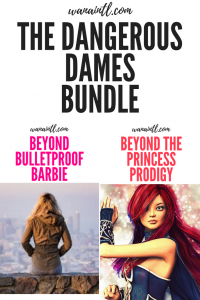
Can’t seem to choose between pirate princesses and bulletproof Barbies? We don’t blame you…and, you don’t have to!
With the Dangerous Dames BUNDLE, get both classes and SAVE MONEY.
Purchased separately, each class is $45. Go for BOTH and get $90 of instruction for ONLY $75. You also get to spend a HUGE part of the day with ME (Kristen Lamb) and my partner in crime Cait Reynolds.
Date: Saturday, June 23, 2018
Price: $75.00 USD
PRINCESS PRODIGY: 11:30 a.m.-1:30 p.m. EST
BULLETPROOF BARBIE: 2:00-4:00 p.m. EST
*Recordings of both classes included with purchase.

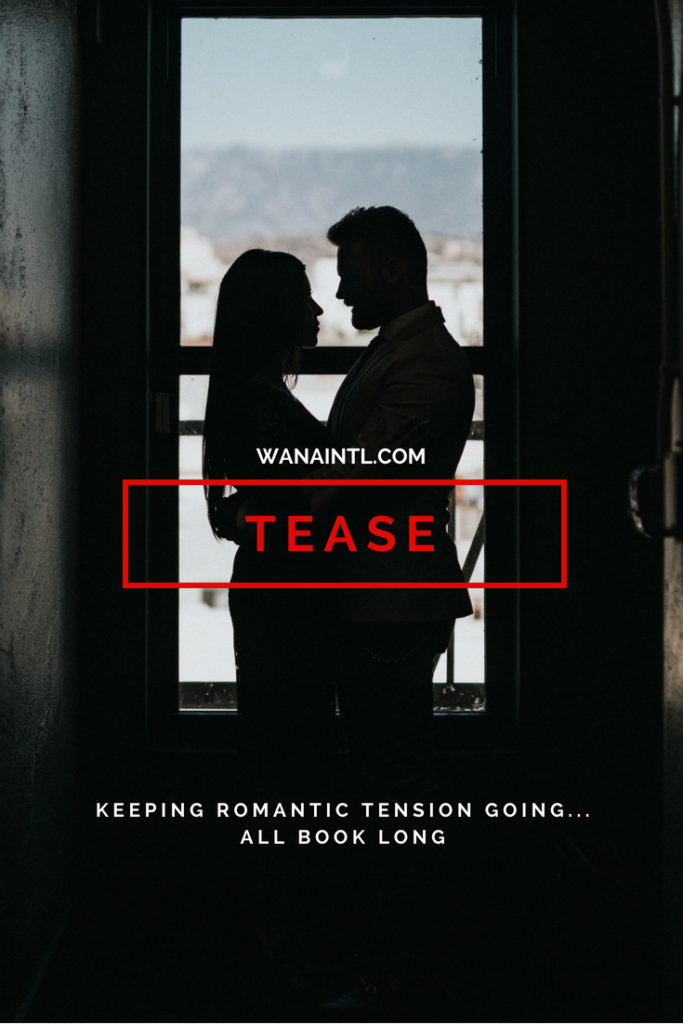








36 comments
3 pings
Skip to comment form
A wonderful piece, as always! See you on the 23rd for the Bulletproof Barbie workshop. Sounds awesome.
Thank. You. I wish I could relay the depth of emotion behind those two simple words, but THANK YOU!
Thanks so much for your insights! After about five thousand rounds of self-editing, I’m considering hiring an editor in the next year, but honestly, I’m concerned about finding a good one that I can afford. (I know, I know! I promise, I’m not one of the people listed above who just want the cheapest editor possible. I just need to find the balance between quality and price- gotta keep the kids fed!) If you don’t mind, I’d appreciate any tips.
I have to say, now that I’m done laughing,that this is a great post. Editing is so crucial and yet so many still don’t “get it”. Spellcheck is not real editing, nor is having a buddy who aced all his English classes read through your ms. Going pro costs, all there is to it. (You had me at “Hampster Wheel of Death”.)
Yes. A thousand times yes! I’m a freelance unicorn editor who is contemplating a change in profession to goat herder.
Amen and Amen!
I too freelance and specialize in substantive editing, and Cait, you’ve articulated so much of what I try to explain to my clients. Points 1 and 3 are huge issues for me. My job is to educate, and I love it! It’s heartbreaking, though, to keep making the exact same edits and comments several projects (and years) later because the client “trusts” me and has ignored 99% of my notes in favor of “accept all.” Hours were spent drafting and curating those notes and resources I left in the margins. Time wasted so they could hurry up and publish. Debating an idea is so much fun, and we all learn in the process.
My son did a cost analysis for one of my contracts and said, “Mom, this isn’t a good return on YOUR investment.” Sadly, he was right. I love this work, though, but I need my sanity more than I need the money. I’ve had to scale back my offerings and have become very strict when vetting long projects.
Thanks for another great post. You’ve again confirmed that I’m on my best path. WANA!
I’m not sure whether I class as a freelance editor or not… I don’t get paid in hard cash for the few manuscripts I edit for others, but I do get ‘credited’ by having my own work edited, proof read, and all those other processes an MS goes through before the publisher starts formatting, without having to pay for it.
I’m published by a small independent ‘one man and his wife’ publisher… with few resources, but a ton of enthusiasm and support for their authors. Myself and a few other authors assist with the editing process, and in turn our books are edited by others of our number. In my own case, I have a reciprocal agreement with my editor who’s an author himself… I edit his MSS, and he does mine. It works well, and has done now for several books. Our publisher trusts both of us to not pull our punches when anything crops up that we’re not 100% happy with, and both of our writings have benefited from the feedback we give each other.
But your piece was about things editors hate to get thrown at them. I can’t speak for others, but in my case it’s ‘self help’ books, sports memoirs, and business ‘how to’ books that bring down the glazed shutters over my eyes… and it’s a grey glazing, not nice clear plate glass.
These kinds of authors are the world’s worst for trite clichéd sayings, repeated ad nauseam throughout the book, and formulaic ‘examples’ that bear as little resemblance to real warm breathing feeling people as my left ear does to a bacon slicer.
I think it must stem from the fact that the writing is secondary to the ‘real’ job or identity they’re writing about. It’s like those corporate newsletters and business bulletins that may give all the hard facts, and all the motivational guff (OK… I really meant BS), but are so poorly crafted that no one wants to read them.
Another one which would have been a real loser if I was being paid by the word, was a vampire fantasy novel (of some length) written by an author whose first language wasn’t the English it was written in. My publisher felt it worth doing because despite the work involved (Swedes construct their sentences very differently… Did you know that?) the story itself had merit, and the concept and characters had a lot of potential – the book was the first of an intended series. (I must be mad, because I’ve since edited… in places re-written… others from the same author.)
I love how you intersperse humor with plain talking. Your post is terrific.
Boy, can I relate to the “just accepted the line edits and didn’t change anything substantial” issue. When I taught college, I would give students who got a C or lower on their papers the option of rewriting them. I was amazed how often they just made the grammar and typo corrections I’d marked and didn’t change the major stuff I had commented on. Of course, their grade did not improve, but I so wanted to write across the top of the paper, “Do you think I got to be a college professor by being stupid?”
Very true, Kassandra. An editor correcting the typos and grammar/spelling errors should be considered a bonus… There shouldn’t have been any by the time an MS reaches the editor.
I’ve moved scenes, and even chapters, because the fresh eyes of my editor felt they’d be better in a different order, or that a character or situation needed introducing to the reader earlier in the book (foreshadowing) but the device of simply dropping references into the developing plot wasn’t enough. – A beta reader once reminded me that a lot of leisure readers of thrillers and crime fiction pay less attention to the descriptive background details, and more to the action. If a writer hides his clues and references in those details, they get missed, and a “Who was the killer?”, or “Where did that guy with the rifle come from?” situation arises.
Likewise, as an editor, I’ve suggested similar changes… in one case a flashback chapter, from well into a novel, became a prologue instead. The author tried it and agreed. For the reader, it made more sense. Throughout the book, the memory of that seemingly unconnected piece before the first chapter intrigued the reader until its relevance became evident.
With word processing at our fingertips, even major changes are no real effort and can improve the flow of a plot no end. Structural re-vamps are no problem, with whole scenes or chapters able to be easily moved ‘en bloc’ to try them in other locations or time frames.
I’ve been an independent editor for over 20 years. The biggest change I’ve seen in writers and their manuscripts is in the devotion to stream of consciousness writing. Writers over the past 10 years seem to feel that the process of book-writing consists of being thunderstruck by a ‘stupendous’ idea, then pouring their heart out via this earth-shattering story for a month or a year (or more), with only the intent of ‘finishing’. For the most part, there is little interest in producing effective writing — and instead, the interest is in getting ‘my’ story down ‘on paper’.
This means that they view all the rules of good story writing as irritating encumbrances that belong and affect only editors. These writers have ‘produced’ a manuscript and now want the editor to ‘fix’ it so it fits into those rules.
Of course, some read writing books, take courses, and can quote the rules proudly. However, instead of this making them more flexible or understanding or accepting of editor comments, it often makes them more resistant — demanding that the editor ‘prove’ why they have a different view of the writing than the potential author.
My wholehearted respect for every writer and their manuscript is fully intact with each new author-client. They have complete control over how the edit progresses and what they chose to do with the direction and guidance I give. My intent, as a developmental specialist, isn’t to ensure the language is grammatically correct, but rather to ensure that the story is really a complete story.
My expectations with writers all have to do with mature intent, openness to learning and applying new knowledge, and a willingness to work hard to create new, better, more effective iterations of their manuscript.
I love the N.A.R.F. — and not just because my last beloved cat was named Narfy. If N.A.R.F. becomes a reality, I want to be one of the first members. I’ll even pay dues…
Great post, Cait. I really think most writers are devoted to their creativity, it’s just that difficult transition from finishing the ‘dream’ to doing the work of making the dream a strong, true reality.
….nooooo I didn’t proof the post… bad editor! bad bad bad! :o)
I find it hard to understand just sending a manuscript off to an editor without extensively editing myself first, sending to beta readers, and making sure it is ready to be copy-edited. The more I can take care of before hitting send, the quicker my editor is able to get through the manuscript which means it costs me less since he charges by the hour. I also don’t like being in the position of having to send back for re-edits since that adds to the cost. And when my editor gives suggestions, I appreciate them and take them seriously, after all, that is part of what I’m paying for. 🙂 It’s just good business sense!
OMG! I could almost have written this work-for-word. This is why I’ve gone back to a day job and only edit for certain previous clients.
I get so many writers who send me what amounts to a first draft, they think I just need to proofread it and then it will be ready for uploading to Amazon. Argh! Plot holes, continuity errors, characters that all sound the same … Don’t get me started on the abysmal grammar and punctuation.
Thanks so much for writing this. I only hope that the writers who need it most will pay attention.
Yes! Yes! Yes!!! I am soooooooo feeling you right now, Cait!!! I save myself a lot of stress. I tell my potential client, send me the introduction (if it’s non-fiction) and the first two chapters of your book. By the first paragraph or chapter, even the first sentence I can tell whether or not my client and I will have a problem. Then when I return the intro and chapters along with my changes and/or suggested edits and they return them accepting my changes, then I know, yeah, I can work with you.
Thank you for truly and properly articulating how I as a freelance editor feel sometimes. But I often consult with my client before they decide to sign on the dotted line. I make it clear you are quite free to either accept or reject my suggestions/changes, after all it’s your book. Just pay me what I have quoted you on the invoice. And if they decide to go with the crap they have written, then I simply say “Please do not mention anywhere in your book that I did your editing.”
Refreshing to look at one’s writing through this particular lens. Many gems to consider.
Thank you for this. It should be required reading for all writers who plan to self-publish.
Preach!
I hadn’t thought about how the KDP hamster wheel was influencing the quality of books authors are getting out, but that’s a good point. Amazon rewards fast, and it’s hard to watch the income drop because you can’t get a book out every month. Thanks to you and Kristen Lamb making these posts, I am concentrating more on trying to make the best story I can instead of rushing it out into the world. It was hard to get out of the hamster wheel, but because of you two writing inspiring posts, I’ve been able to take my eyes off of what is happening on Amazon. That’s been a very liberating experience.
Very good advice – I always wait 2-3 weeks before 1st read-through, make changes then re-do, then every time I read it I find more. Not sure if that means it wasn’t good the first time but each time it does get better. BUT – my rush to get done is so I can get next one down, too. At 80 books I really need an editor! Love your blog…
It’s inordinately frustrating to find mistakes in traditionally published books – especially when people tell you that your self-published one looks “just like a real book!” Like a real book but without the typos! I yearn to scream. Discreet/discrete is one I’ve been seeing a lot of lately. Grr.
For Restoration Day I went with an editor who charges 1c per word (it’s a 100k novel), but who gave me a 10% discount because she’d read the book as a beta-reader and liked it 🙂 Still, editing was the biggest line on my budget, because it really isn’t something you can do for yourself.
Love it! Hilarious as usual, Cait. And good advice, too. This further reaffirms my belief that my book needs a couple more rounds of self-editing before I hire an editor. 🙂
It’s almost like writing a book is a lot of hard work that involves more than vomiting words on a page!
I came here to make sure I had my bases covered, but it looks like I definitely hold the same irks and opinions and I”m not even an editor.
That was a savage eye opener. And fun!
An interesting and thought provoking article. Good stuff here!
I am still considering whether I want to try and go the traditional publishing route or try self-publishing, but after reading your article, I will be seeking a professional editor to look over the manuscript which I have already put through three rounds of edits. Thanks for the great advice.
I kid you not, I just (last night) found a wondering/wandering slip while I was editing! It’s terrible frustrating as this was not my first (nor second or third…) round of editing. BLECK!
Four to six cents a word? Good, qualified editors charging this amount need to raise their rates! Keep out the riffraff. I’m afraid the writers you’re talking about here are probably not reading this blog and if they do are thinking, “She’s not talking about me.”
I’m a good, qualified editor, and I don’t get much more than that. Writers won’t or can’t pay it, so I have to accept less or starve. As you point out, the writers most in need of the advice in this post won’t think it applies to them. They vomit words on pages and call it a day. “Done. Perfect. Sending it off now.” I’ve gotten the most atrocious manuscripts you can imagine. A few I literally could not finish, they were so badly written. I’m amazed any of us stay in the profession. It tends to wear one down.
Excellent article. (I am proud to say I checked your “lead/led” list and I made none of those mistakes–yet.)
One I can’t believe you left off the list (or I read the article so fast, I missed it) is: sending your MS to an editor, making corrections over the next few days, and then sending an “updated” MS…and then making more corrections the following week, and sending an “updated, updated” MS.
I think an editor is legally permitted to send Vito and Icepick to break your kneecaps for that.
ROFL *high five* YES!!!!
After completing a rather arduous manuscript featuring:
* Countryfile Syndrome (characters endlessly contemplating the cosmos while walking through intimately-described fields for no obvious reason)
* Puppy-pile syndrome (wherein all the MC’s best friends appear in every scene for no obvious reason other than to confirm the MC’s marvellousness)
* A hero who’d rather throw himself into a combine harvester rather than say ‘please’ or ‘thank you’
I felt rather exhausted. Much like the pigeon in your meme.
So this gave me a much-needed laugh. Thank you. And yes, I do believe it’s time to get a bit of sunshine.
Haha. This is hilarious, awesome, and true. Thanks for the fun read. Hopefully it saves some editors some grief. (And I agree that prices need to be raised. I have never paid that little, and I still thought I was getting a good deal.)
I hate these mistake and after letting my book rest I’ll look for them again. I stopped offering to help on the website I’ve talked about before simply because all the errors were driving me nuts. These could have been easily fixed.
I was so bad when first starting out. I still can mess up there and their if I’m typing too fast. But that’s in part due to my annoying dyslexia. Not an excuse mind you just another hill to climb. 😛
My pet peeve is misplaced paragraphs or even worse none at all. !@#$ I won’t even read it. A giant wall of text that goes on for 3k words (sometimes more) on every chapter? Fix that mess. The rhythm and flown just isn’t there and there’s a ton of errors to boot. Get the flame torch!
Anoter thing that irks me is that the site I like to write my stories in, it won’t let us use smart quotes and replaces then with the idiot quotes, and will often replace em dashes with en dashes. *Screams* So I get to have the fun of c/p everything into WordPad and replacing every single quote and dash. yay. Just another reason to get the heck out of there.
I loved this article. Was just nodding through the whole thing, being like “A-men to that!”
I’m amazed (and ridiculously worried) at the overwhelming amount of writers who believe that editing is just running through suggested changes as well as the amount of editors that offer that up as real editing!
I really don’t get why writers run around complaining that no one gives them constructive feedback and that it’s just soooo hard to find a good editor who will actually help, and then constantly turn to $5 Fiverr editors because they’re on a “budget.” This just hurts more when those same people will sell a kidney to have “amazing” cover artwork. For real, which one do you really think is worth more money? What’s fantastic cover art going to do when the inside of your book, the actual story, is just sad?
I’ve also noticed that with the rise of self publishing, some authors are asking for an edit in the pre-order stage O.O Like what the *&#$?!
I took a look at the first page of a YA novel that is scheduled to be published in a month- three mistakes in the first sentence. By the end of the page, I didn’t know whether to laugh or just simply throw myself out the window to at least end my misery. Poor readers…
I recognise ALL those hates – and I’m not even getting paid. I proofread and tidied up the stories from my writing group when we published our anthologies, and I started my blog in the hope that certain of our writers would pick up some punctuation tips. (Nope.) I have now been asked to ‘look over’ someone’s novel before self-publication. Since then, I’ve circulated numerous relevant blog posts to the group – all to no avail. I have specifically suggested that the novel-writer studies the latest returned, Mark-upped chapter, to read, mark, learn and inwardly digest before sending the next. Nope.
I’m tempted to send the group a link to this article, but it’s maybe a little TOO obviously targeted.
[…] Today, Cait Reynolds, as a guest on Kristen Lamb’s blog, has an excellent post about five things editors hate. […]
[…] break your story. Nick Wilford examines the benefits of reading your work aloud, Kristen Lamb lists 5 things your editor hates about you, Nathan Bransford warns to watch out for empty gestures in your novels, and Jami Gold shares how to […]
[…] Five Things Your Editor Hates About You – I’m not even going to talk about how authors will pay $500-$800 for a custom cover design but want that $200 editing job. […]